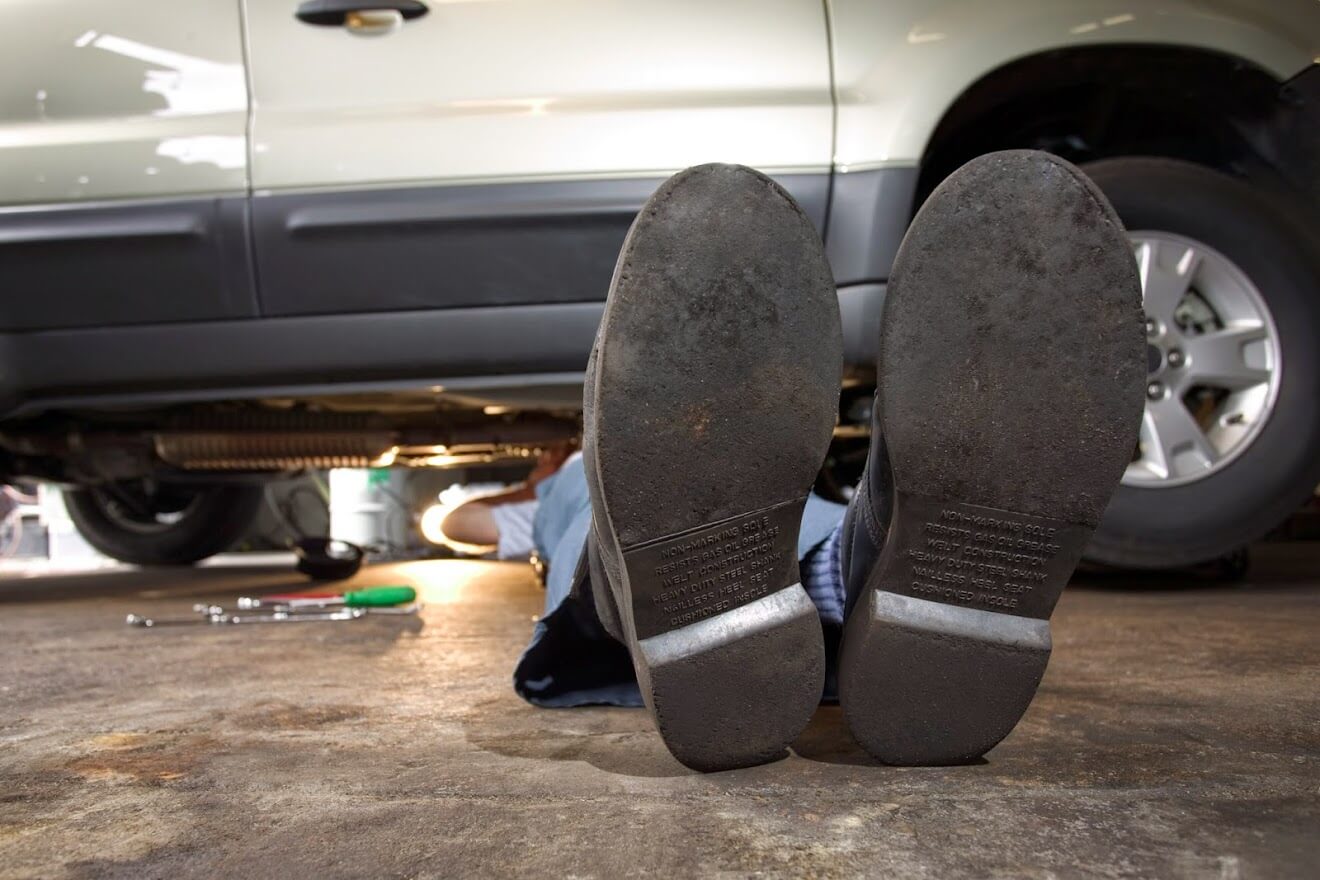An oxygen sensor senses how much oxygen is coming through the exhaust system on a vehicle. There is a predetermined air/fuel ratio that the computer expects to see from the sensor. Based on the oxygen sensor reading, the vehicle computer will adjust how much fuel it delivers to the engine, hence affecting the oxygen level.
The oxygen sensor is also referred to as the air/fuel ratio sensor or the lambda sensor. For the purposes of this article, we will refer to these sensors as oxygen sensors. Most vehicles have at least two oxygen sensors, one in front of the catalytic converter and one behind it. Vehicles that are equipped with two banks (like a V6 or V8) then will have four oxygen sensors.
How Do Oxygen Sensors Work? 
Just like catalytic converters, oxygen sensors need to get hot before they start working. Most oxygen sensors are equipped with a small heater inside of them to heat them up quickly. The heater element in the sensor, much like a hair dryer element or an incandescent light bulb, can burn out over time. When they burn out, the check engine light will come on the dash and store a code. Fortunately, you will still be able to drive the vehicle until you can come in for repair. Over the years at A+ Japanese Auto Repair, we have seen many oxygen sensors fail very close to one another. Be prepared if one oxygen sensor fails to replace another sensor soon after.
How Long Do Oxygen Sensors Typically Last?
The oxygen sensors aren’t used to only regulate the fuel delivery to the engine; they also test how efficient the catalytic converter is working. The vehicle computer is looking for the front oxygen sensor to be moving up and down in voltage, while the rear sensor should be very steady. Sensors should last at least 100,000 miles before they need to be replaced.
Trust Our Factory-trained Mechanics to Replace Your Oxygen Sensor
If your check engine light has come on and you suspect it may be due to a failed oxygen sensor, then schedule an appointment with A+ Japanese Auto Repair. We can diagnose your problem to have you back on the road quickly. We specialize in servicing Japanese brands, including but not limited to Toyota, Honda, Infiniti, Mazda, and Nissan.
--
Disclaimer: This article is provided for general informational purposes only. It is not intended as advice for your particular vehicle, and should not be relied upon for that purpose. Please consult a qualified automotive maintenance professional to determine the maintenance and repair needs for your vehicle.